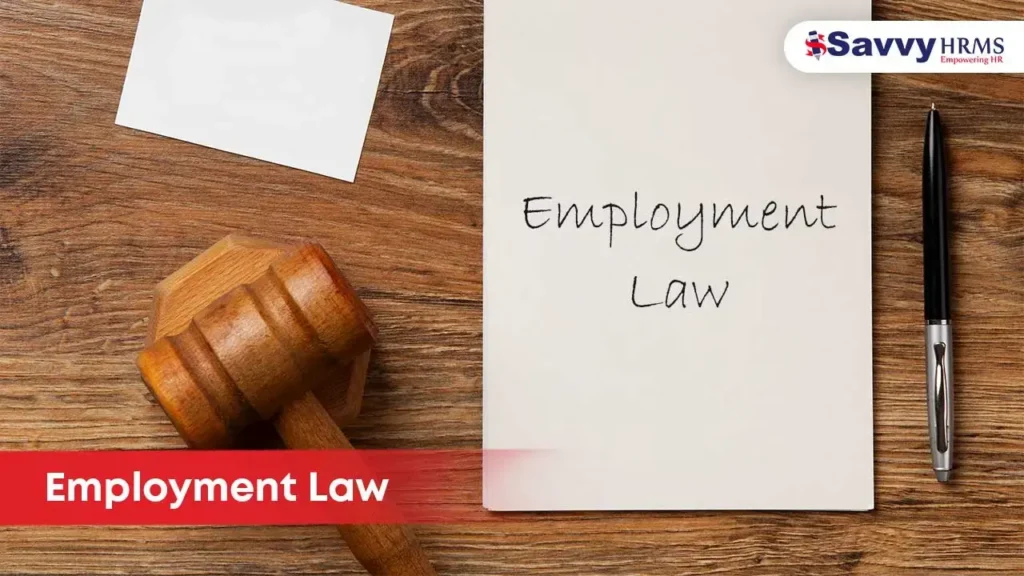For both employers and employees. Employment Law represents a fundamental directive regarding rights and responsibilities in the world of work. It establishes rights, protects those rights, and leads to balanced work environments. Vocationally, most people have heard the term Employment Law.
Familiarity with Employment Law helps you avoid conflicts. Follow established legal procedures, and support a positive organizational culture. We will now break down the elements of this important area of the business world.
What is Employment Law?
Employment Law is the collective term given to the rules and regulations. Employment Law provisions include matters such as hiring practices. Workplace health and safety, wages, discrimination, termination, etc.
The Significance of Employment Law
We cannot underestimate the significance of Employment Law. It protects an equilibrium between your business aspirations and the welfare of your staff.
1. Employee Protection
This area of law is significant for workers. Because it ensures that the workers in our organisations are treated fairly. And safeguards against illegal factors such as discrimination, unpaid wages, or wrongful dismissal.
2. Fair Hiring and Dismissal
In terms of hiring staff, Employment Law means that a potential employee must be hired. Based on their skills for the job, and other factors cannot be considered. It means that you are treated fairly. And you cannot have your job taken from you by an employer without cause or a basis of documentation.
3. Employee Safety
Employment Law also means that all workers have to work in an environment. That is deemed health and safety compliant, or at least follows regulations. Put in place by the prime minister, and for our non-Australian readers. All countries have systems that provide a level of normal risk to employed workers.
4. Fair Working Hours and Wages
It covers wage payments and makes clear rules about working hours. This provides a safety net for workers. From being taken advantage of and provides workers believe that there is a level of trust built into the system.
5. Strong Staff Morale
When an employer complies with Employment Laws. Staff confidence continues to rise through a positive series of expectations fulfilled. Furthermore, if a staff member feels safe being there, they will produce more for the company.
Important Aspects Covered Under this Law
In order to understand the relevance and scope of Employment Law, here are the primary areas of coverage:
- Hiring and Recruitment
- Wages and Hours
- Discrimination in the Workplace
- Employee Benefits and Remuneration
- Termination and Severance
- Occupational Safety and Health
- Contracts and Company Policies
All of these cover and represent key components of fair employment practice.
Employment Law and Human Resources
When we think of Human Resources practitioners. They use employment laws and regulations not just to understand what is permitted. But also to understand how to apply them to utilize or construct:
- Policy
- Complaint processes
- Successfully avoid and manage legal concerns
- Ensure compliance in hiring and termination
It becomes risky and ineffective, and can have legal consequences. When human resources professionals do not understand, rely upon, and apply it correctly. It is an important part of being an effective HR Manager.
Obstacles to Employment Law for Businesses
While this provides a structure, it is still complex.
- Keeping up with employment laws across borders when dealing with remote teams
- Dealing with employee disputes in the environment
- Ensuring every department is making sure they are compliant with the law regulating employment
However, while hurdles exist. Companies that allocate dollars for legal, training, and compliance can work through the issues as a business.
How to Stay Compliant
Now that we understand that Employment Law is critically important, how can a business ensure compliance?
1. Develop a Policy Handbook
Provide details regarding the legal obligations of the company. And the rights of the employees.
2. Train Your Teams
Educate the HR staff, managers, and employees about their legal function and responsibility.
3. Audit Frequently
Exposing the gaps in current practices and fixing them.
4. Engage Legal Experts
Speak with this law to ensure you are on the current side of legal change.
5. Leverage HR Software
Automate compliance tracking and documentation, rather than being done manually for accuracy.
By executing these points, companies can establish a workplace that is compliant with the law to build a greater workplace that contains ethical principles.
Conclusion
In conclusion, Employment Law is ultimately the bedrock of today’s workplaces. Provides a basic structure in which an employer can operate fairly. And provides an avenue for peace of mind to both sides if they have a solid understanding. In these relationships, both the employee and employer can be successful together. The employee can be assured that their environment is safe, fair, and respectful. When they go to work, the employer can maintain a level of trust and loyalty. From their employees and will have a legally positioned backstop for reduced legal risk.
FAQs
Q1: What is Employment Law?
It ensures employees are treated fairly & work in healthy and safe conditions. And that their employers comply with the law.
Q2: Does this apply to part-time workers?
Yes. It applies to all employees. Whether full-time, part-time, temporary, or contractual.
Q3: Can I sue my employer if they are not following Employment Law?
Suppose your employer breaches this law. You can take legal action or make a legal complaint depending on the circumstances and the local laws.
Q4: How often is Employment Law changed?
It can change once a year or more frequently. Depending on updates from the government, economic changes, or social changes.
Q5: Do small businesses have to follow?
Yes. All businesses, regardless of size, must comply with employment law to ensure equal treatment and adhere to ethical and legal practices.




